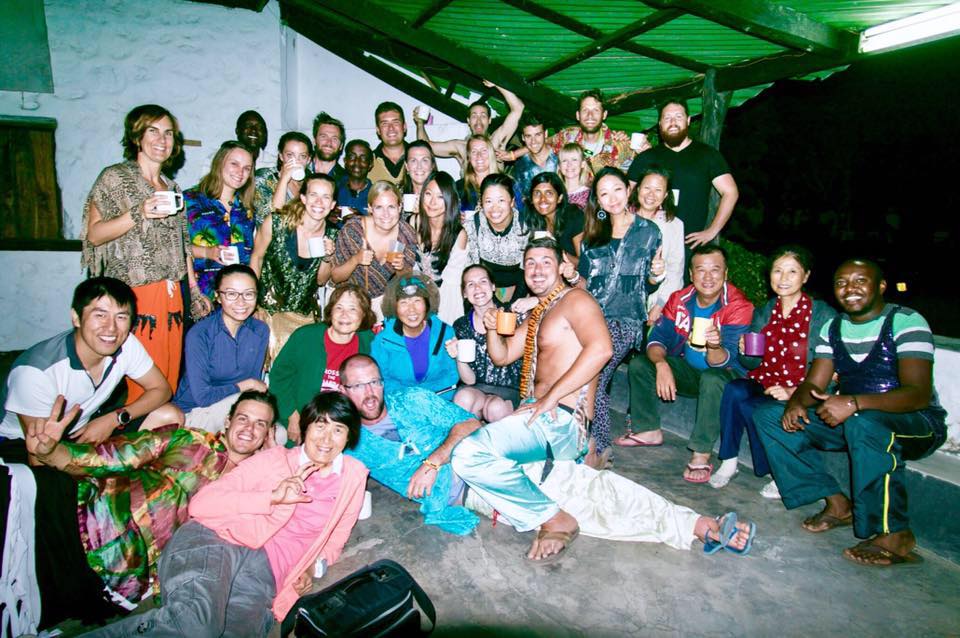First and Last Impressions of Malawi
At the time of writing this post, I was on Day 31 in Africa. I'm now on Day 47, and I finally have an internet connection that has allowed me to upload the photos and get this one published. So here you go...
There has just been so much new information entering my head on a daily basis that I have been hesitant to document any of it, for fear of it becoming irrelevant, or worse, inaccurate, a few days later. But this is part of the ongoing learning and discovery process which is travel. So I don’t claim to be an expert on Malawian culture, but I can give you a glimpse of what I saw during three days there.
We travelled down the western side of Lake Malawi and spent two days at Kande Beach, where we participated in the local tourist custom of a fancy dress party complete with a pig on the spit and home-made punch. After purchasing our costumes from the designated costume sellers, we asked our guide where they got the clothes from. His answer was that they were the second hand clothes that “you” had donated to Africa. Sure enough, they were the more ridiculous looking clothes that Westerners had donated, and which Africans would never wear. I think the fact that these people have devised a way to sell these clothes back to us is genius. Many shirt and pant combos had been sewn into jumpsuits and then jazzed up with some tassles, frills or fluffy animal tails.
On a more cultural note, I also participated in a walk through the lakeside village with the chief’s son. Upon leaving the campsite, none of us were quite prepared for the mobbing that ensued – 30 young men ran at us and grabbed our hands in an effort to be the first one to introduce themselves and strike up a conversation. We soon settled into our walk with about 4-5 locals per visitor. After a seemingly standard introductory conversation with one of them, he later pulled out a map of Africa which he had painted, and proposed to finish it off with my name, each of the ten countries I was visiting, and a picture of an elephant since that is my favourite animal. Although I admired his entrepreneurial efforts, he didn’t end up making the sale.
The tour took us to the local water pump (which had been sponsored by the Canadian government), the chief’s mother’s house, the medical clinic and the primary school. Along the way, we saw a glimpse of some typical daily chores – collecting water, collecting firewood, tending to the crops, grinding cassava flour and cooking, all of which happened to be “women’s jobs”. When we asked what jobs the men do, we were told that “they do the fishing, and that is a very hard job because sometimes they have to stay out all night".
The medical clinic’s catchment is 18,500 people and their biggest issue is malaria. For more complicated issues that cannot be treated at the clinic, patients are expected to make their own way to the nearest hospital (70 km away) as there are no ambulances. The primary school has 1,500 students and 11 teachers, meaning over 100 kids in each class.
Malawi is a beautiful country, especially when we were on the road before sunrise, and saw the lake and the farmland on its shores changing colour in the morning light. Their main economic activity is agriculture, and tourism has not yet really taken off. I feel lucky to have had a glimpse of the people and their lives here.

















